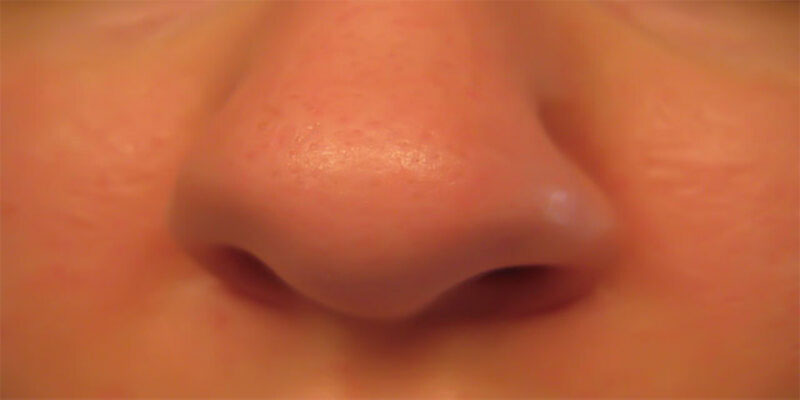Millions of individuals every year suffer from sinus infections, often known as sinusitis. Facial discomfort or pressure, stuffy nose, and green or yellow nasal discharge are all possible side effects. Viruses, bacteria, allergies, and sinus structural issues are all potential triggers for a sinus infection. The contagiousness of sinus infections is a topic of interest for many. There is no way for a person to get a sinus infection from another person. Thus the answer to your question is no. Although a contagious virus or bacterium may serve as the root cause of a sinus infection, the illness itself is not spreadable. Despite having symptoms that are similar to those of the flu or the common cold, a sinus infection is not communicable. If you think you have sinusitis, seeing a doctor may help you receive a proper diagnosis and treatment plan.
What Is A Sinus Infection?
When mucus accumulates in the sinuses, it causes inflammation, discomfort, and other unpleasant symptoms known as a sinus infection.
- Headache
- Nose that runs or is blocked
- Smell loss
- Postnasal drainage
- Throat pain
- Halitosis, or bad breath
- Cough
- Fever
- Fatigue
Sinus infections often present with similar symptoms, but their root causes vary widely. Some sinus infections, especially those caused by viruses, may spread easily to other people. However, whether your symptoms are brought on by allergies, nasal polyps, or a physical anomaly like a deviated septum, you are not infectious and pose no risk to others. Let's dive further into some of the most common causes of sinus infections to get you started on the road to recovery.
How Do Sinus Infections Occur?
Viruses
Sinus infections are often brought on by viruses. They provide a setting favorable to the development of a sinus infection. Sinuses that are clogged act as a kind of incubator for bacteria, resulting in a worsening of symptoms and a prolonged illness. Since viruses cause most sinus infections, they are also the most likely to spread to other people. A virus may infect a host by floating in the air on a drop of water, and it can live for hours or days on most surfaces. Sinus infections caused by viruses often subside within 7-10 days. The propagation of the virus may be controlled during that period by:
- A disguise had been put on her face.
- Sneezing and coughing with the mouth covered.
- You use soap and water to clean your hands regularly.
- You won't catch me caressing your face.
- As much as possible, I stay away from people.
To shorten the course of your infection and find relief from your symptoms, try out these treatments:
- Steam: Breathing in steam helps clear mucus from your sinuses and sinus cavities.
- We recommend attempting fluticasone, which is more effective over time when used in combination with other treatments including nasal sprays and flushes. You should exercise caution when deciding on a nasal spray, since some of them (like Afrin) have time restrictions on how often they may be used.
- Medications available without a prescription: Pain in the face, congestion, and shortness of breath are all alleviated by decongestants. Try an over-the-counter pain treatment to minimize the severity of your illness as soon as possible. Make sure there won't be any unwanted drug interactions by talking to your doctor first.
Bacteria

Sinus infections may also be caused by bacteria or fungi that get trapped in the sinus cavities. Sinus infections, on the other hand, originate in the nose and are thus not communicable. Bacterial sinusitis occurs in about 2% of people who have a sinus infection, so it's not that common. Treatment with antibiotics for a bacterial infection typically lasts between three and six weeks. When a sinus infection lasts longer than six weeks, medical attention is required. At Advanced ENT, our specialists will collaborate with you to create a unique treatment plan.
Allergies
Allergies are a common cause of chronic sinusitis, also known as recurrent sinusitis. When the body detects an allergen, it releases histamine as a defense mechanism. Thus, histamine may trigger the sinusitis symptoms of puffiness, congestion, and sneezing.
Sinusitis brought on by allergies may only be beaten by eliminating the cause. Choices might involve:
- Antihistamines (Claritin, Zrytec, Allegra) (Claritin, Zrytec, Allegra).
- Products for inhalation via the nose.
- Sublingual immunotherapy and allergy injections.
Our doctors advise getting allergy injections or using allergy drops for long-term treatment. Both methods involve exposing your body to allergens over time in order to help it develop a tolerance. Your allergy symptoms should start to improve after a few months (or perhaps a few weeks).
Nasal Polyps

Nasal polyps are benign growths of tissue that may block your nasal and sinus passageways and cause congestion. A sinus infection may develop as a result of this obstruction if it is not treated in time. Doctors often use steroid nasal sprays to treat polyps, which reduce polyp growth and improve breathing. Nasal polyps may be removed surgically or with a different medicine.
Conclusion
In conclusion, the transfer of sinus infections from one person to another is not possible. Oftentimes, they are brought on by a viral or bacterial infection, an allergy, or a structural issue in the sinuses. A sinus infection may cause severe discomfort, so it's crucial to contact a doctor if you're suffering any of the signs.







